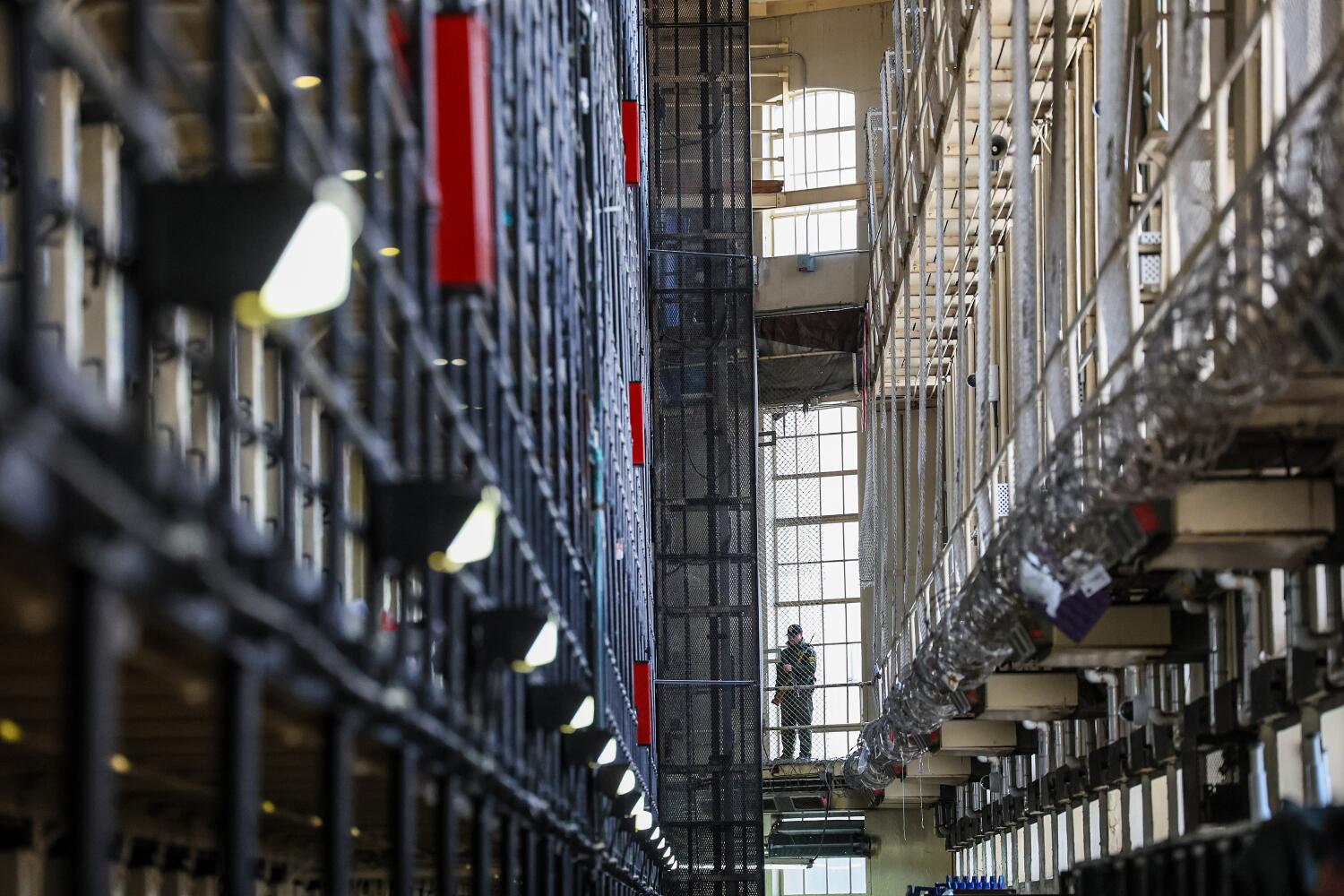-
Magic Poised to Poach Timberwolves Star Free Agent: Report - 30 mins ago
-
Hamburg Hospital Fire Kills at Least 3 - 44 mins ago
-
MAGA Accuses Democratic Senator Cory Booker of Doing ‘Nazi Salute’ - about 1 hour ago
-
Multiple officers down in Baldwin Park - about 1 hour ago
-
‘TACO’ Is the Secret to Trump’s Resilience - about 1 hour ago
-
Timberwolves’ Anthony Edwards Draws Epic Comparison to Dwyane Wade - 2 hours ago
-
Trump to Withdraw Musk’s Ally as Nominee for Top NASA Job - 2 hours ago
-
How to Buy Indiana Pacers NBA Finals Merchandise: Conference Champions Hats, T-Shirts, Gear - 2 hours ago
-
Rihanna’s Father Dies, Barbadian PM Says: ‘Spirit of Our Nation’ - 3 hours ago
-
M.I.T. Class President Barred From Graduation Ceremony After Pro-Palestinian Speech - 3 hours ago
Did slew of false positive drug tests cost some inmates their freedom?

Thousands of inmates wrongly tested positive for opiate use inside California state prisons last year because of a laboratory mistake, and civil rights attorneys now worry many of them could be denied parole and a chance at freedom because of it.
About 6,000 drug tests are believed to have generated false positive results in 2024, according to attorneys at UnCommon Law, a nonprofit advocacy group that represents inmates seeking parole. The organization confirmed the false test results through a series of public records requests, which showed positive test results suddenly spiked across California prisons between April and July last year.
The tests were done as part of inmates’ drug treatment programs and included in their medical records, but attorneys representing the prisoners said the test results were also included in inmates’ parole hearing records as a result, meaning hundreds or thousands of parole hearings could be unfairly swayed by incorrect test results.
“Part of the problem is we don’t know the full scope of how it has impacted people,” said Natasha Baker, an attorney with UnCommon Law. “We believe several of our clients have been turned down.”
California Correctional Health Care Services, which provides healthcare to inmates in the state’s 31 prisons, notified the California Department of Corrections and Rehabilitation about the incorrect tests after it discovered a significant increase in the number of presumptive positive tests between April and July 2024, according to a statement from the corrections department.
The false positives came from urine drug tests given to prisoners undergoing treatment for drug addiction, and were not part of the random drug tests that inmates could face when they’re suspected of drug use. The tests are not supposed to be used for punitive purposes, Baker said, but the inmates’ medical records, including the drug tests that occur as part of their treatment, are included in their file when they are considered for parole.
“You have the board doing life and death decisions based on a drug screen,” she said.
According to UnCommon Law, positive opiate drug screenings in the state’s prisons hovered at about 6% each month on average.
Between mid-April and late July 2024, however, the advocacy group found that the positivity rate for drug screens in the prisons shot up significantly, peaking at about 20% in June.
Based on the data obtained by UnCommon Law, the group estimates that at least 15 California prisons recorded at least 200 false positive tests during that time period. For most prisons, nearly 1 out of 8 tests probably yielded a false result, the group estimates.
According to UnCommon Law’s data, the wrong test results appear to have affected the state prison in Corcoran the most, where more than 1 in 5 tests may have recorded the wrong result.
At this point, Baker said, it is unclear how many inmates who received incorrect drug test results have faced parole hearings.
The tests were done by Quest Diagnostics, a firm contracted to perform drug screening for the state’s prisons.
According to the company, the incorrect tests occurred between mid-April and July 2024 after the company temporarily changed the reagent, or chemical used in the drug test, because the original substance was unavailable from the manufacturer.
In a statement, a spokesperson for the company said the replacement reagent had been approved by the U.S. Food and Drug Administration.
“We believe that the different reagent led to a higher presumptive positivity rate on screening results than the standard reagent used by Quest Diagnostics,” the statement read.
The company added that presumptive screening can, in some cases, provide false positives. In many cases, presumptive testing requires further confirmatory testing.
“We make clear on our test reports that presumptive results have not been confirmed with definitive testing,” a spokesperson for Quest Diagnostics said in the statement. “In addition, the reports state that drug testing results should be used for clinical purposes only.”
The company offers confirmatory testing, but in most cases, California Correctional Health Care Services does not request it, according to Quest Diagnostics.
In a statement, a corrections department spokesperson said California Correctional Health Care Services is still in the process of notifying patients affected by the false tests, via letter. Those letters, the spokesperson said, are to be included in the inmate’s electronic health record.
California Correctional Health Care Services “is actively reviewing its protocols to ensure the accuracy of results and reiterating that these tests are intended for clinical use only,” the statement read.
But according to internal discussions in the prisons, medical staff members have raised concerns that some inmates may have already been denied parole as a result of the drug tests.
“We believe that at least a couple of our patients have been turned down by the board due to false positives,” one doctor at San Quentin wrote in an October email obtained by UnCommon Law and shared with the L.A. Times.
Baker, the attorney from UnCommon Law, said state officials have not done enough to ensure that the false positive test results haven’t tainted the parole process for inmates.
“Given the way that parole hearings work, even though this occurred over a three-month period last year, this could affect people’s parole decision for many years to come,” Baker said.
Inmates’ risk score, which takes into account their behavior, participation in rehabilitative programs and their health records, could also be affected, she said.
“You might be going to your parole hearing in 2028, and hearing for the first time that there’s a positive drug test in your record in 2024,” Baker said. “How are you supposed to defend against that?”
Baker said it’s unclear how to determine exactly which inmates were affected.
But according to a Jan. 29 memo from California Correctional Health Care Services, the agency has identified a list of patients who were affected by the incorrect tests.
On Oct. 18, medical staff also provided training to the Board of Parole regarding the use of the drug screenings, and how the tests are used only for medical purposes. The board was also briefed about the three-month period when the false test results occurred.
UnCommon Law has been petitioning the parole board to make an official determination that the tests from that time period won’t be use in its decisions.
“All of those tests should be wiped because they were tainted,” Baker said. “It’s the easiest, fairest way to address it.”
She said she believed the board should also not have access to medical records in making its assessment, because reviewing an inmate’s treatment record without the correct training could lead to wrong conclusions.
“This is an egregious example of why we have been pushing for a long time that the board should not get access to treatment records,” she said.
Source link



















